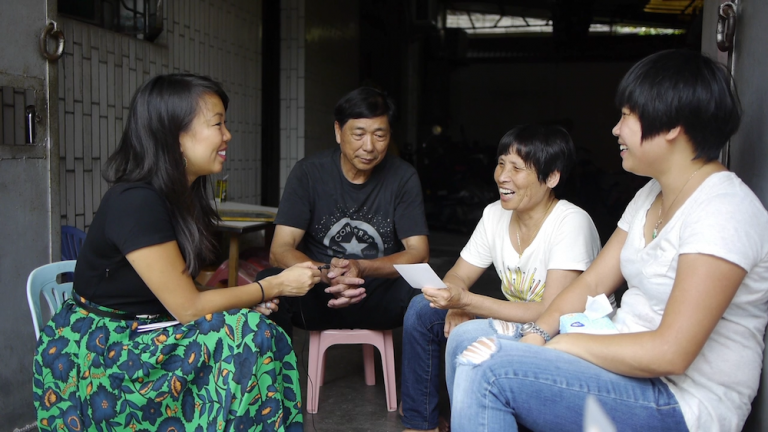When it comes to discovering more about your Chinese heritage, there is no better place to start than with your ancestor – or your own – traditional Chinese name. This typically includes a Chinese first name (also known as a given name), Chinese generation name, and Chinese surname.
In this blog article, we’ll share some interesting tidbits on Chinese first names that could help you understand more about your cultural identity and give clues on how to trace your family tree.
1. The anatomy of Chinese first names.
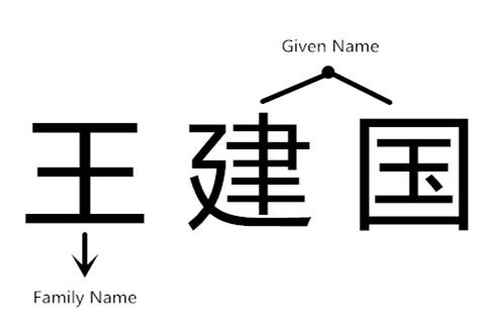
Unlike English names, the surname or family name comes before the first name for the Chinese. In some cases, a person may also have a generation name, which will be expounded upon later. Combined together, a full Chinese name can consist of anywhere between 2 to 4 characters.
Many local Chinese possess only 1 character in their first name (e.g. Pei), while diasporic Chinese tend to have 2 characters (e.g. Pei Lin).
Throughout the history of Chinese immigration, the unique ordering of Chinese surname and first name caused much confusion among foreign immigration officers. This is why some English-language immigration records occasionally mix up the migrant’s surname and first name.
2. The significance behind Chinese generation names.
The generation name “字辈” (Zibei) marks the generational position of the bearer. Chinese generation names are decided beforehand by our forefathers, both in terms of the pool of characters and the order they should follow.
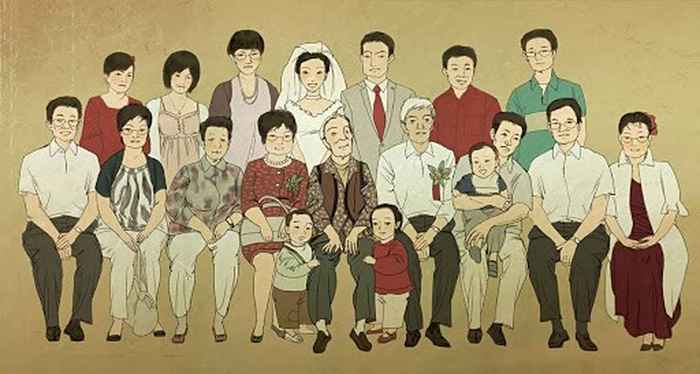
Traditionally, some families follow a pre-defined generation poem to name their children. Each person would be given a name containing one character from the poem; their children would receive a name containing the following character from the poem; and so on and so forth.
For example, in the poem below, the first ancestor may have the Chinese generation name “立” (Li), while his son would have the word “显” (Xian), his grandson would have the generation name “荣” (Rong), and so on, in sequence.
立显荣朝士, Li Xian Rong Chao Shi,
文方运际祥。 Wen Fang Yun Ji Xiang.
祖恩贻泽远, Zu En Yi Ze Yuan,
世代永承昌。 Shi Dai Yong Cheng Chang.
Women were typically given different generation names from their male counterparts. Thus, all the men of one generation would have the same generation name, and all the women would have another generation name.
In Mainland China, the practice of having a generation name has declined since the Mao regime in China, when revolutionary-sounding names became more popular. It is now rare for a person to have a Chinese generation name.
If you have a Chinese ancestor, look out for records of his/ her relatives with similar sounding names: do they share a generation name? Explore these other leads, as they may help you identify long-lost relatives and map your family tree.
3. Chinese first names are packed with auspicious meaning.
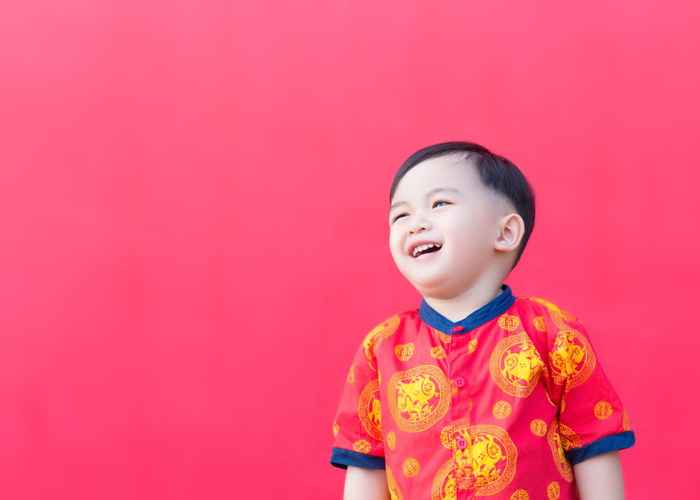
An English name might or might not have any significant meaning behind it – but a Chinese first name certainly does. Each Chinese character has a specific meaning, and first names are composed to represent the strengths a parent hopes their child will embody. This is easily seen by doing a quick Google search for the most common Chinese names for boys or girls, and their significance.
For example, the most common Chinese first name is “张伟” (Zhang Wei), which means “Great”. Other popular Chinese given names include “李强” (Li Qiang), which means “Strong” and “李敏” (Li Min) – “Quick”.
If you want to know the meaning of an ancestor’s Chinese name, but don’t know how to write it in Chinese, check out our Name Translation service !
4. Tonality is key in Chinese given names.
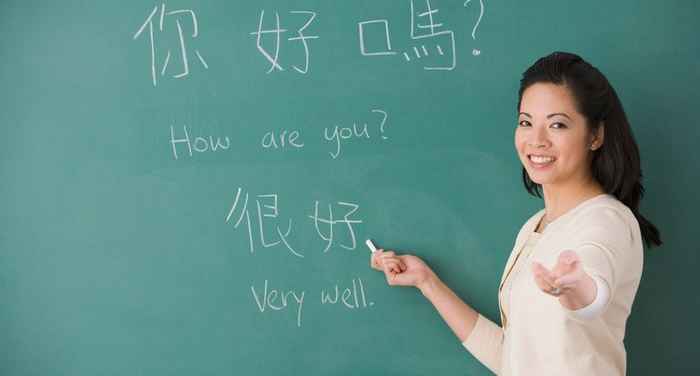
When it comes to Chinese characters, the literal meaning of the word isn’t the only thing you have to watch out for. Chinese people believe that the tone of a word can influence its meaning as well since a large part of our communications is verbal. For instance, some Chinese people possess the surname “吴”, which doesn’t mean anything in particular. However, due to its tonality, it sounds like the word “无”, which means “do not have”. In such cases, any auspicious Chinese given name that follows afterward is, in effect, negated.
5. According to Chinese culture, names can determine your destiny.
Apart from choosing auspicious names simply by their meaning, the Chinese believe that Chinese names should be given based on a person’s “八字” (Ba Zi). This is a Chinese fortune-telling system that uses birth date and time to calculate the natural elements present, the luck cycles, and general destiny of a person. This geomancy technique originated from a scholar in the Tang Dynasty (A.D. 618 – 907) and was practiced again in the Song Dynasty (A.D. 960 – 1279). It has been passed down through the generations and is still widely used today.
Importantly, the Chinese believed that a person’s name should be aligned with their “八字” (Ba Zi). A good name was considered to comprise of a balance of the five elements – fire, wood, earth, metal and water, while being beneficial for the individual according to their predicted destiny. Depending on the way the Chinese character was written, it could consist of one or more of the elements.
As such, many Chinese consulted with fortune tellers to choose the perfect names for their child.
6. ‘Ah’, the start of most Chinese nicknames.
Have you ever heard a Chinese name starting with the word “啊”(Ah)? If you’ve ever binged on Chinese movies, you’ll notice that some of them address one another by names such as “Ah Qiang”, “Ah Yih”, and so on. These are nicknames used by one’s friends and kin on a familial basis, typically created by taking the last character of a person’s given Chinese name (or sometimes their surname), and adding the word “啊” (Ah) in front.
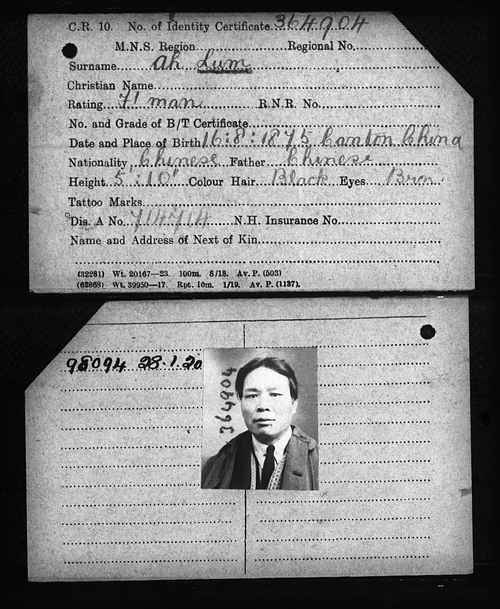
There is another interesting story about Chinese immigration here. Some people’s ancestors are known officially by this nickname, again due to miscommunications between the foreign immigration officers and migrants. When asked what they were called, some Chinese migrants were confused and stated their nicknames, rather than their traditional formal names. This led to false documentation of their “Ah” nicknames as their actual first names.
7. Most Chinese men traditionally had up to 5 different names.
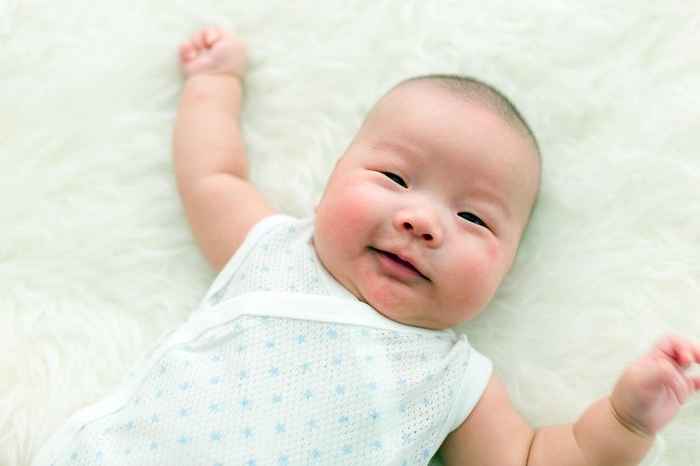
In traditional Chinese society, men received a variety of first or given names at different stages of their life: a milk name “ 乳名” (Ru Ming) at birth; a true name “讳” (Hui) which was considered taboo for others to call you by; a style courtesy name “字” (Zi) upon reaching maturity; a pen name “号” (Hao); and a posthumous name “谥号” (Shi Hao).
This means that your ancestor may have been known by several different names, depending on their stage of life and the surrounding context. Keep this in mind when looking for your ancestors in your family tree book, or “族谱” (Zupu), as they may not be documented with their official name there.
8. The Chinese don’t name their children after celebrities.
You’ve probably heard instances of people naming their children after famous celebrities, heroes or movie characters. In some cases, parents also named their children after themselves to pass down their legacy.
However, you’ll never hear of that happening with the Chinese. The Chinese tend to name their children to follow their own paths and destinies, giving them first names representative of the strengths they hope their children will have. They do not believe in intentionally naming their child after someone else!

Find your ancestral village and connect with Chinese relatives!
If you are interested in finding your ancestral village and connecting with relatives in China, we would love to be of assistance. Our global team of researchers has helped hundreds of families discover their Chinese roots. Learn more about our services or go ahead and get in touch!
With the global pandemic, My China Roots is offering virtual tours packaged with our research trips to your ancestral village. Check out a demo here!


